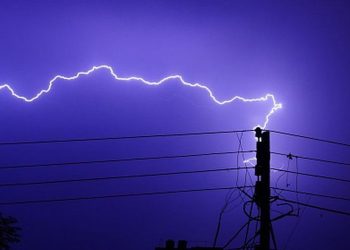As Cyclone Fengal rapidly approaches the southeastern coast of India, authorities have taken precautionary measures, shutting down schools and relocating hundreds of people to safer areas. The powerful storm is expected to make landfall in Tamil Nadu state on Saturday afternoon with sustained winds of 70-80 kilometers per hour (43-50 mph), according to India’s weather bureau.
Cyclonic storm Fengal, which recently skirted the coast of Sri Lanka, has already caused significant damage there, claiming at least 12 lives, including six children. With its impending landfall, experts are warning of surging waves of up to one meter (three feet) that could pose a flood risk to low-lying coastal areas. Fishermen have been advised to stay off the water due to the hazardous conditions.
In Tamil Nadu, schools and colleges across numerous districts have been closed as a precaution, and at least 471 people have been moved to relief camps to ensure their safety. The state’s residents have been urged to stay indoors as the cyclone’s effects intensify.
Cyclones, also known as hurricanes or typhoons depending on the region, are a regular and deadly threat in the northern Indian Ocean, and scientists have warned that these storms are becoming more powerful due to the warming climate. Rising ocean temperatures provide more energy to storms, intensifying winds and rainfall, making them more destructive.
However, advancements in weather forecasting and evacuation strategies have significantly reduced the death toll from such natural disasters. Despite the growing strength of these storms, the improved preparedness efforts are helping to mitigate the impact on affected communities.



































